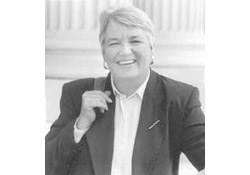Women in economics expose sexism in the field, demand action

Some industries, once totally male-dominated, have today become a bit more balanced. Women make up nearly half of medical school graduates and a third of practicing physicians. They make up just over half of law school students and over a third of those in the legal profession.
While these numbers may still fall short of full equality, they represent much more progress than in the field of economics, which remains stubbornly almost entirely male. Women make up less than a third of all people with Ph.D.s in economics, a share that has stayed more or less steady over the last decade, and less than 13 percent of full-time professors.
Now there are signs that the profession is starting to grapple with how it treats women and the sometimes subtle ways they are still shut out.
The gender disparities in economics came into sharp relief recently after the release of a study, and a New York Times column on it, analyzing the conversations on an informal jobs board. The Economics Job Market Rumors Forum had long served as a virtual water cooler of sorts, making public the kinds of conversations that may be going on in whispers or behind closed doors but rarely get said out loud in public.
Combing through more than a million anonymous posts from economists, the researcher, Alice H. Wu, found that the most common words associated with women were professionally inappropriate and often downright hostile. In order, they were: hotter, lesbian, bb (short for baby), sexism, tits, anal, marrying, feminazi, slut, hot, vagina, boobs, pregnant, pregnancy, cute, marry, levy, gorgeous, horny, crush, beautiful, secretary, dump, shopping, date, intentions, sexy, dated, and prostitute. The picture her work paints is pretty clear: Women in economics are talked about in relationship to their bodies, their sexuality, their families, or all three. The words associated with men, on the other hand, tended to have a positive tone and be related to their work, such as goals, greatest, and Nobel.
The research uncovered the bias that still permeates a male-dominated profession and the forces that hold women back. It was able to shine a light onto what women may suspect is happening but may not be able to name or quantify.
And now the publication of the research, and the high profile it garnered, has catalyzed the industry to start facing its own misogyny.
Inspired by the research, Heidi Hartmann, president and CEO of the Institute for Women’s Policy Research, and Michael Reich, economics professor at the University of California Berkeley, started a petition to the American Economic Association. They picked the AEA because, Hartmann told me, it is the “largest, most universal economics professional association.” The petition called on the AEA to essentially create a replacement for the informal jobs board that was so riddled with sexism by creating its own moderated and transparent jobs wiki.
“The AEA should release and widely disseminate a public statement that condemns the treatment of women economists on the site,” the petition reads in part, “and should also reaffirm its commitment to increasing the diversity and geographical reach of the AEA in addition so supporting the professional development and interests of economists teachers, and students.”
“For a field that prides itself on being able to grapple with the most complex social and economic issues, gender equality has been a distinct blind spot,” Hartmann said in a statement about the petition. “The AEA, representing the largest number of economists, has a duty to take on misogyny in our ranks.”
The petition has now garnered more than 1,000 signatures from the likes of Nobel Prize winner Angus Deaton, Harvard economist Carmen Reinhart, and former White House advisers such as Christina Romer, Jason Furman, and Laura Tyson.
It’s already gotten a response. On October 20, the AEA’s executive committee issued a statement. “The American Economic Association strongly condemns misogyny, racism, homophobia, antisemitism and other behaviors that harm our profession,” it states. In light of the controversy over the job board and the petition, it said it was creating an ad hoc committee on professional conduct, which will be charged with coming up with a set of guidelines for its affiliated economists, and that it will submit a report by January. It also said it’s “exploring the possibility” of creating its own jobs site and message board.
Hartmann was disappointed that the AEA didn’t make a statement upon the publication of the New York Times story about Wu’s research, but instead waited for the pressure from her petition gathering hundreds of signatures.
She is now pushing them to do more. “We don’t know if they will establish a competing wiki-type website for job info,” she told me. “The ad hoc committee the AEA formed has a mission of looking at standards of behavior in the field, not setting up a new wiki.” She also warned that the membership of the committee is “small, and not especially representative.”
That’s why she isn’t done fighting. These issues will be on the agenda at the next business meeting of the AEA in January, which could offer an opportunity for more action. Meanwhile, Hartmann and her supporters are not backing down. “The petition is designed to keep the pressure on the AEA and actually get them to do something,” she said.
The research, and the snowballing support for the petition, show that the profession has a deep problem, but that people in the field are ready to start addressing it. Now we wait to see what form any action will take.
More articles by Category: Economy, Misogyny
More articles by Tag: Activism and advocacy, Discrimination, Women's leadership




























